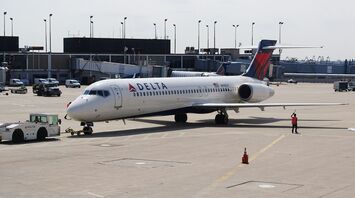Delta Air Lines Reduces Daytime Europe-Bound Flights: What Travelers Need to Know

Delta Air Lines has announced a significant adjustment to its transatlantic schedule, specifically reducing the number of daytime flights from the United States to Europe. This decision, which will take effect in the coming months, marks a shift in the airline's strategy as it responds to changing travel demands and operational challenges. For travelers planning trips across the Atlantic, understanding the implications of these changes is essential for making informed travel decisions.
The Shift in Delta’s Transatlantic Strategy
Delta’s decision to cut back on daytime Europe-bound flights reflects the airline’s ongoing efforts to optimize its route network in response to evolving market conditions. According to the original report, the airline will reduce or entirely eliminate certain daytime services from key U.S. hubs, including New York’s JFK and Atlanta, to major European destinations such as London and Paris.
The reduction in daytime flights is part of a broader strategy to align supply with demand more effectively. By concentrating on overnight services, which have traditionally been more popular with business travelers and tourists alike, Delta aims to maximize load factors and improve operational efficiency. This shift also allows the airline to better allocate resources during peak travel periods, ensuring that it can meet passenger demand without overextending its capacity.
Impact on Travelers: Fewer Daytime Options
For passengers who prefer daytime flights to Europe, Delta’s schedule adjustments may require a change in travel plans. Daytime flights have often been favored by those who seek to avoid the overnight red-eye experience, allowing them to arrive in Europe feeling more refreshed. However, with the reduction in these services, travelers may need to consider alternative flight times, such as evening departures that arrive in Europe early the next morning.
This change could also impact passengers who rely on tight connections or have specific scheduling needs. With fewer daytime flights available, travelers may need to adjust their itineraries, potentially opting for flights on other carriers or choosing different travel dates to accommodate the new schedule.
The Broader Context: Responding to Market Dynamics
Delta’s reduction in daytime Europe-bound services is not occurring in isolation but is part of a broader trend across the airline industry. As carriers continue to navigate the post-pandemic recovery, many are reevaluating their route networks to better match current demand levels. In the case of transatlantic flights, this often means focusing on the most profitable routes and times of day, while scaling back on less popular options.
For Delta, the decision to focus more on overnight flights aligns with the preferences of a significant portion of its customer base, particularly business travelers who value the efficiency of arriving in Europe early in the morning. Additionally, this strategy allows the airline to concentrate its resources on flights that are more likely to operate at full or near-full capacity, thereby improving overall profitability.
Alternative Options for Daytime Travelers
While Delta’s reduction in daytime services may be inconvenient for some, there are still options available for travelers who prefer these flight times. Other major carriers, including those within the SkyTeam alliance, may continue to offer daytime flights on similar routes. Passengers are encouraged to explore these alternatives when planning their journeys to ensure they find a schedule that meets their needs.
Additionally, Delta’s focus on overnight flights may present opportunities for passengers who are flexible with their travel plans. By adjusting their schedules to accommodate an evening departure, travelers can still enjoy a smooth and efficient journey to Europe, with the added benefit of arriving at their destination early in the day, ready to make the most of their time abroad.
Looking Ahead: What to Expect from Delta
As Delta continues to refine its transatlantic operations, travelers can expect further adjustments to the airline’s schedule. While the reduction in daytime flights may be the most immediate change, Delta’s broader strategy likely includes other initiatives aimed at enhancing the customer experience and ensuring the airline remains competitive in the global market.
For passengers, staying informed about these changes is crucial for making the most of their travel plans. Whether it’s adjusting to new flight times or exploring alternative carriers, being proactive in planning will help ensure a smooth and enjoyable journey.



















